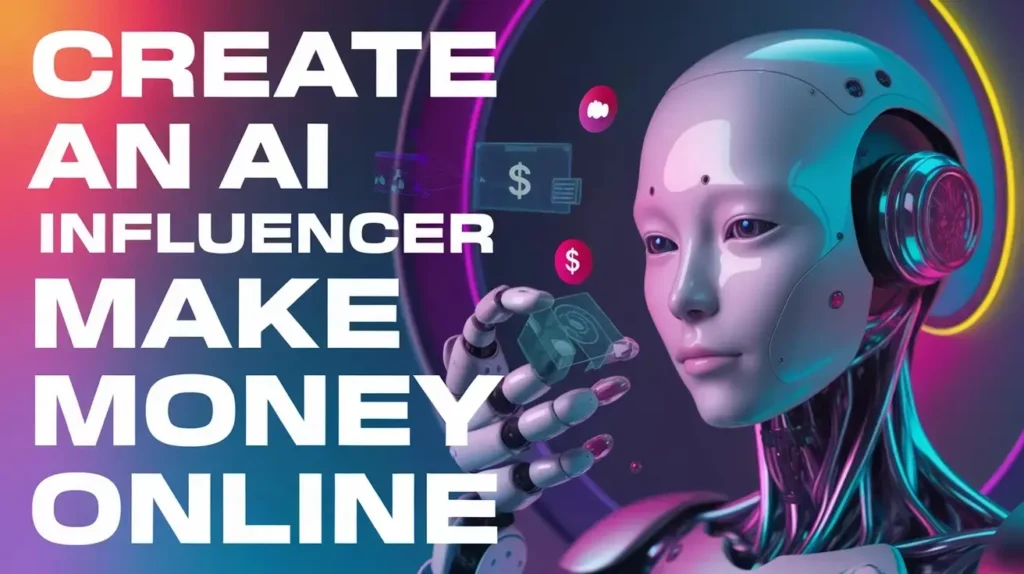
The realm of social media is undergoing seismic shifts, with new players challenging the existing giants.
One such contender is OpenAI, considering a potential foray into the world of social media with a platform powered by its flagship technology, ChatGPT.
As giants like Meta (Facebook) and X (formerly known as Twitter) face their own set of challenges, OpenAI’s move could pose a significant threat, potentially altering the social media landscape forever. In this blog post, we’ll explore what OpenAI’s new platform might look like, its implications for existing social media platforms, and how advanced AI features could revolutionize social interaction online.
This discussion aims to understand if ChatGPT social media can truly stand as a formidable competitor against established players such as Meta and X.
The Rise of OpenAI’s ChatGPT Social Media
In 2024, OpenAI dropped a bombshell: the announcement of a social media platform potentially named ChatGPT Social.
This initiative, inspired by the growing frustration with current social media options, particularly regarding privacy concerns, user engagement issues, and misinformation, aims to leverage artificial intelligence to provide a new and safer space for users.
The push towards creating a distinct platform began with the recruitment of Gabor Cselle, a notable name in the tech industry, known for his work as the co-founder of Pebble and a former product manager at Twitter.
With Cselle leading the charge, OpenAI is poised to craft a social network that could leverage AI in a way that offers users something truly unique.
A network that takes real-time personalization, AI-driven content curation, and advanced privacy mechanisms to another level.
The AI-driven approach would mean that ChatGPT Social Media could analyze user preferences, understand sentiments, and adapt interactions seamlessly.
This could make conversations more meaningful, relevant, and engaging—a far cry from the current content-churning mechanisms adopted by many platforms.
Internal discussions and strategy papers point to some ambitious plans. One of the intriguing features proposed is the AI-powered moderator, a unique solution to tackle misinformation and harmful content effectively.
This feature could help in real-time identification and removal of misleading information, setting new standards for content accuracy.
Meta and X: The Threat Assessment
As ChatGPT social media rises, existing social media giants like Meta and X (formerly known as Twitter) may face a severe threat.
Meta has long held a monopoly on social connections through its broad spectrum of platforms—Facebook, Instagram, and WhatsApp.
Meanwhile, X has been pivotal in real-time public conversations. However, with increasing privacy issues, user disillusionment, and concerns over user data exploitation, both giants are susceptible to a challenger that addresses these gaps.
The concept behind ChatGPT Social Media is rooted in providing better user experience, privacy, and AI moderation.
This model directly challenges the issues Meta and X have struggled to fix for years:
Real-time Moderation
A major problem with existing platforms is the inability to moderate content effectively in real-time.
While Meta and X have poured billions into AI-based content moderation, results have been mixed, with misinformation, harmful content, and even hate speech slipping through the cracks.
ChatGPT social media, on the other hand, would deploy advanced GPT-based language models, enabling the platform to understand the nuances of language, sarcasm, or coded speech.
Such capabilities make AI moderation more effective, ensuring a safer and healthier online experience.
Privacy Concerns
Meta has faced significant criticism around user data privacy, with multiple scandals involving unauthorized use of user data.
X, post-acquisition by Elon Musk, has also seen concerns rise regarding how the platform handles personal data, especially given the changes in its policies and workforce reductions affecting moderation.
OpenAI’s approach is touted as more transparent, with privacy-first principles guiding the development of its platform.
By relying on robust encryption methods and allowing users greater control over their data, ChatGPT social media could gain an edge over Meta and X.
AI Personalization
Meta’s AI-powered feed algorithms are well-known but often criticized for prioritizing engagement at any cost—even if that means promoting divisive or sensationalist content. X, meanwhile, has struggled to keep users engaged after its rebranding.
ChatGPT Social Media could redefine engagement by focusing on
personal relevance and meaningful interaction.
With an AI backbone capable of analyzing user behavior and understanding contextual nuances, it could provide a feed that is genuinely tailored—emphasizing educational, entertaining, or community-centric content over mere engagement metrics.
Integrating Advanced AI into Social Interaction
A key differentiator for ChatGPT social media is the deep integration of AI in every aspect of the platform—from content curation to moderation and even to interaction design. But what does this mean for users?
Content Discovery
AI-driven content discovery could allow users to find more relevant and interesting posts based on their moods, activities, or learning goals.
Unlike Meta’s ad-driven model or X’s trending topics, which may not align with user interests, ChatGPT social media could identify and deliver precisely what a user seeks—whether that’s breaking news, a local community event, or an insightful discussion on AI.
Real-time Language Translation
Real-time translation powered by AI could also be an attractive feature.
This could allow users from diverse linguistic backgrounds to interact without barriers.
Imagine being able to chat seamlessly with someone across the globe without language being a concern—a significant step towards a truly interconnected world.
AI for Community Management
Community management is another exciting aspect. AI can analyze group dynamics, provide community leaders with insights into engagement levels, and even suggest content themes to enhance participation.
This is an area where Meta’s Groups and X’s Spaces fall short, often leaving community growth and content to user intuition alone.
Long-tail Keywords Targeting
What Makes ChatGPT Social Media Unique?
OpenAI’s ChatGPT social media isn’t just another social network—it’s about changing the paradigm of social interactions online.
Here, privacy, personalization, and positive engagement are the priorities, in tackling the current platforms’ shortcomings.
For users looking for alternative social media networks that guarantee privacy and cater to personal preferences while providing robust content moderation, ChatGPT Social Media could be the answer.
ChatGPT Social Media vs. FaceBook and X: A Comparison
| Feature | Meta | X (Twitter) | ChatGPT Social Media |
|---|---|---|---|
| Privacy Focus | Limited | Controversial | Strong Encryption and Control |
| AI Content Moderation | Mixed Success | Limited Staffing Post-Merger | Advanced GPT-Based Moderation |
| AI Personalization | Engagement Driven, Algorithmic | Basic Trends | Contextual, User-First |
| Community Engagement | Passive | Active (Spaces) | AI-driven Community Insights |
| Real-Time Language Translation | Limited | None | Fully Integrated |
Opportunities and Challenges for OpenAI
Opportunities
- Untapped Market Potential: Users dissatisfied with Meta and X could quickly migrate to a platform that offers more control and privacy.
- AI Integration: With advanced GPT models, OpenAI could introduce unprecedented features like AI assistants within the platform, helping users schedule events, summarize conversations, and even suggest content creation ideas.
- Advertising Reinvented: Instead of bombarding users with irrelevant ads, ChatGPT Social could use AI to ensure that promoted content is meaningful, respecting user preferences and privacy.
Challenges
However, this path isn’t devoid of obstacles:
- Moderation at Scale: Moderating millions of conversations in real-time while maintaining context accuracy is a significant challenge.
- Privacy Concerns: Despite promoting privacy, any lapse or data breach could severely damage OpenAI’s reputation.
- Regulatory Scrutiny: Governments are scrutinizing big tech more than ever before. Launching a new social platform means adhering to an array of regulations across different geographies, which can be complex.
Competitor Response
Meta and X are unlikely to sit still. Meta has invested heavily in AR/VR technologies, with its focus on creating the Metaverse, an immersive virtual space for social interactions.
X, under Elon Musk’s leadership, is also evolving, focusing more on creator tools and monetization opportunities.
The success of ChatGPT Social would hinge on user adoption and how effectively OpenAI can communicate its advantages over the incumbents.
Conclusion: Can ChatGPT Social Media Challenge the Giants?
The emergence of ChatGPT social media represents an exciting prospect for the evolution of online interaction.
By prioritizing privacy, AI-powered content management, and personalized user experiences, OpenAI is setting a high bar for what a social network should be in 2024.
Although platforms like Meta and X have the benefit of established user bases and an array of services, their susceptibility to data privacy issues and moderation failures leaves them vulnerable.
ChatGPT Social Media, with its robust AI capabilities and privacy-first mindset, could offer what many users have long been demanding—a safer, more engaging space for online interaction.
The ultimate question is, will users be willing to make the switch, leaving behind platforms that have become part of their daily routine?
Only time will tell, but OpenAI has already shown that innovation, when correctly applied, can change industries.
With Gabor Cselle’s experience and OpenAI’s AI advancements, the stage is set for a new competitor to rise in the social media landscape.
Internal Links to Explore Further
For more insights on AI and its role in transforming industries, you can also visit Why Investing in ChatGPT is a Smart Move.
ChatGPT Social Media: Are you excited about the future of social media powered by AI, or do you think Meta and X will hold their ground against this new challenge? Let us know your thoughts in the comments below!



